“The first step that I suggest as a solution is that we Iranians, no matter where we live in the world, strengthen the social ties among ourselves…. This is where the power of our social network resides.â€
— Mir Hussein Mousavi, quoted in Ehsan Moghaddasi’s The Green Moharram
|
Mousavi was discussing real-world social networks, but his point applies just as well online. Â With the funeral of Ayatollah Montazeri in Qom turning into a huge show of strength for the “sea of green” protest movement, the Twitter #iranelection hashtag has once again turned into a vital hub for information. Despite government censorship, arrests, and beatings, the courageous students, lawyers, mothers, clerics, journalists and so many others fighting for freedom in Iran have been extraordinarily good at using social network sites to communicate with each other, get the word out, and connect with supporters from across the globe. Â Videos on YouTube, photos on Flickr, Facebook groups and pages … and of course the #iranelection hashtag on Twitter. Back in June, San Francisco-based startup Twazzup set up http://iran.twazzup.com/ and for me it continues to be the best place to follow what’s happening in Iran.* Â The sections for the most popular tweets, links, photos, and videos are a great spam-free crowdsourced overview. Â And the regulars in the “correspondents” section include a great range of high-quality tweeters like @tehranbureau, @iranbaan, @iranriggedelect, @oxfordgirl, @laraabcnews. People who have following the #iranelection hashtag will probably recognize a lot of these names and avatars. Â This goes back to Mousavi’s point about the power of strengthening ties. Â I’ve been following many of these people for six months now, and have developed a lot of confidence in the information they provide. Â And since many of them tweet about other things in their life as well, I (and the tens of thousands of people around the world who follow Iran information via Twitter) others have gotten to know them at least to some extent as people. One of the ways in which social network sites are very different from email and most blogs is that the visuals are typically very prominent relative to the text. Â With an abundance of great graphics and talented designers from the Sea of Green movement, and many supporters around the world turning their avatars green using sites like Green Thumbnails, it’s a particularly vibrant effect on Twitter. A lot of people are skeptical about Twitter’s value for activists, and have some good reasons: the Iranian government monitors all communications and frequently cuts access to cell phone service and the Internet. What I think they’re overlooking, though, is the value Twitter (and Facebook, and YouTube, and Flickr) can bring: as a communication mechanism, as a way of showing support, and to help deepen social ties — no matter where we live in the world. And a note to my progressive and civil liberties activism friends: out of necessity, in an incredibly hostile environment, the Sea of Green movement is on the forefront of social network activism, online and off. So watch and learn — and even more importantly, try to find ways to help. jon |
Update, December 22: The quality of the information on Twitter remains extremely high. See my “favorites” for a sampling.
Enduring America has had some great coverage, including videos of university demonstrations, live-blogs (1, 2), and a thoughtful situation analysis titled From protest to victory?. There’s also a good interview with Mehdi Karroubi in the Times Online, a Farsi-language site with sousveillance photos of government agents videoing the protestors, a report from John Shahryar (aka The Nite Owl), and much much more.
* for some interesting visualizations of Twitter conversations about Iran in June 2009 check out Gilad Lotan’s gallery.




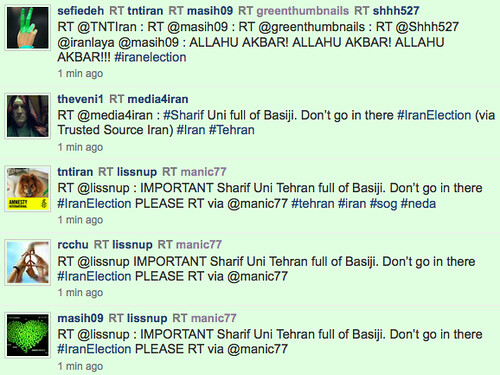

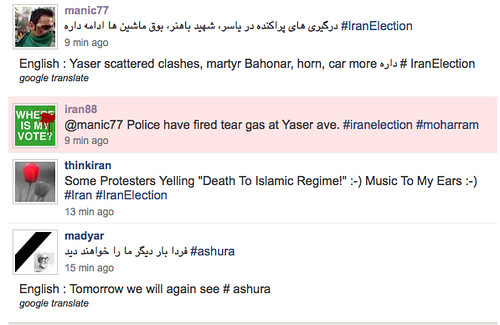

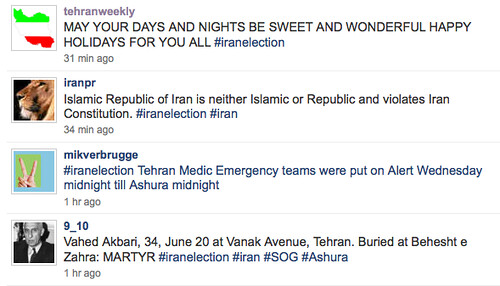


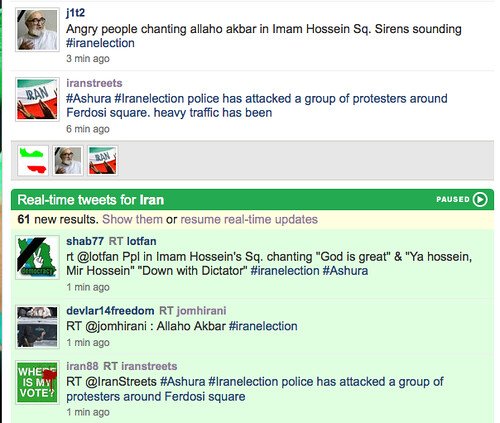
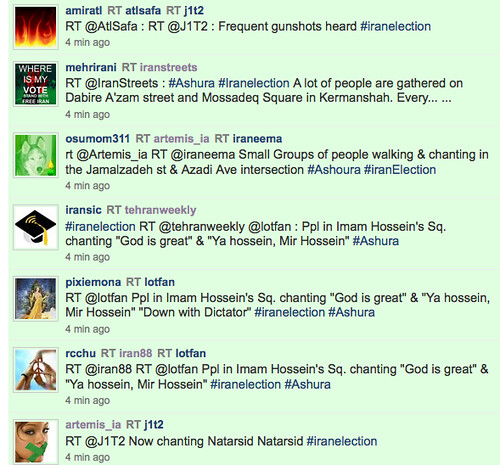

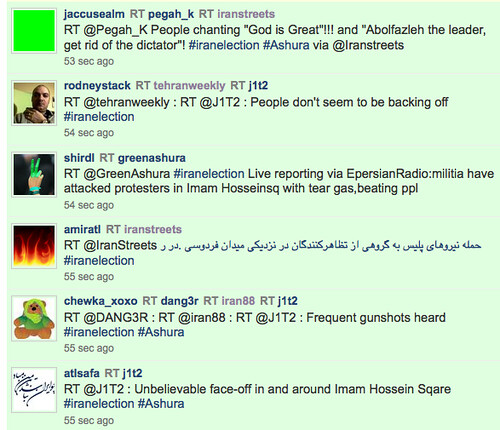

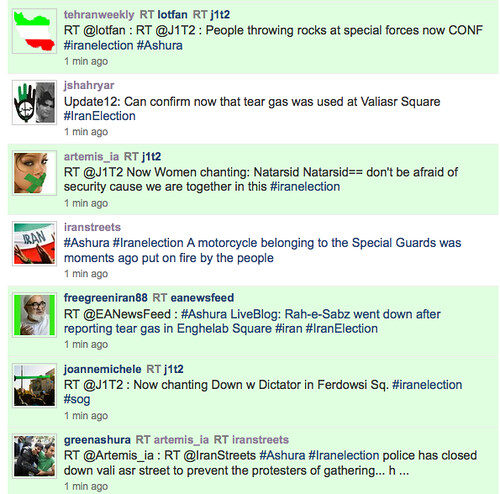


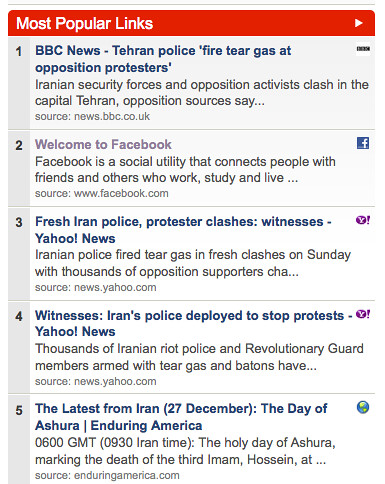




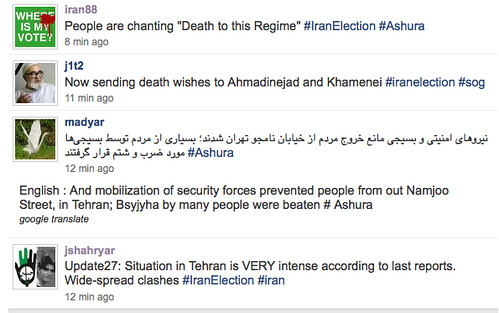



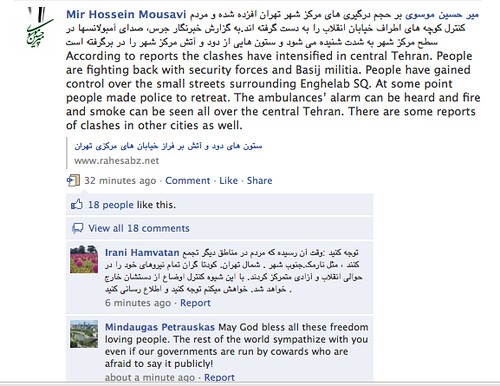
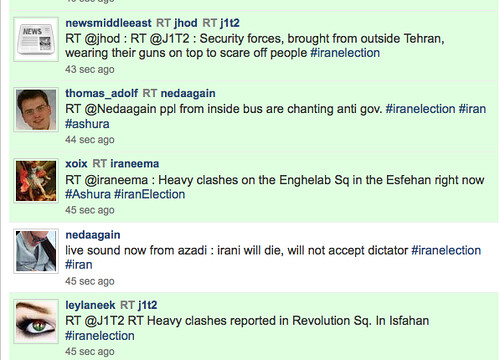

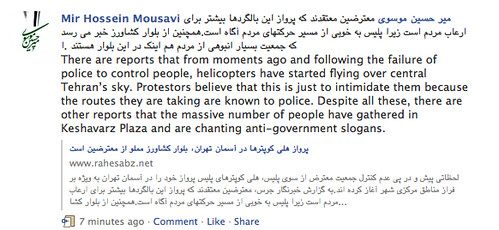
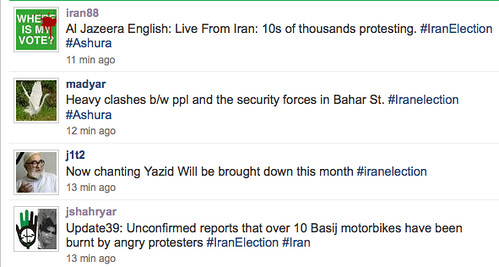

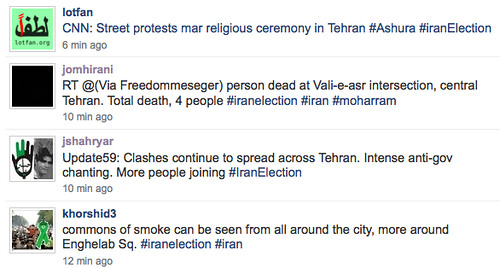



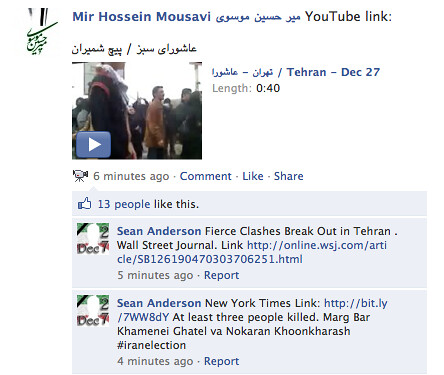
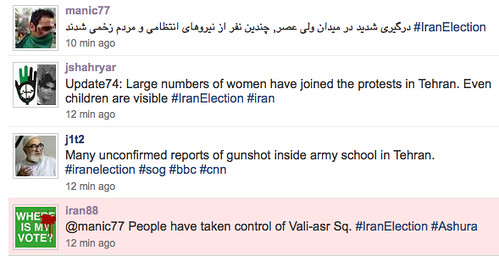

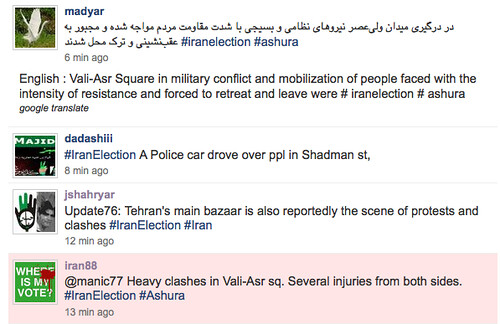



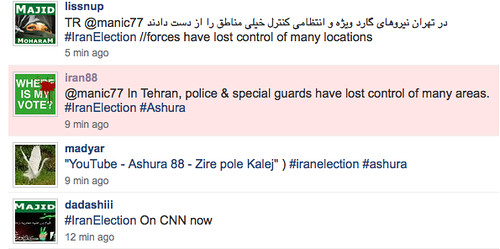
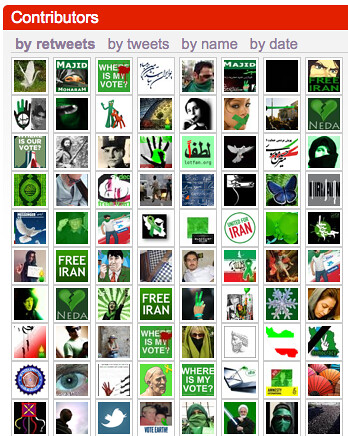
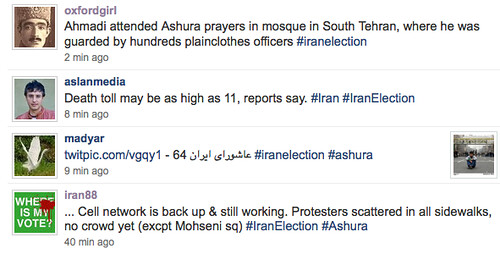
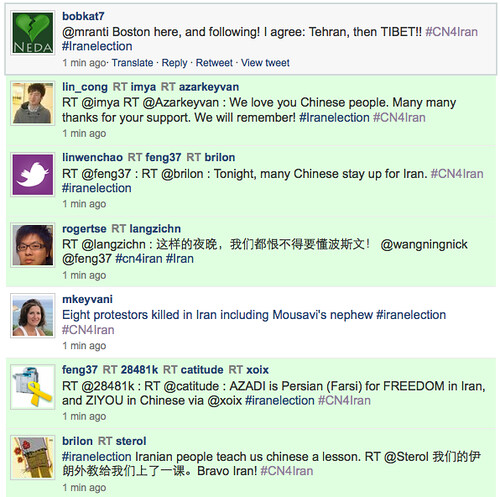





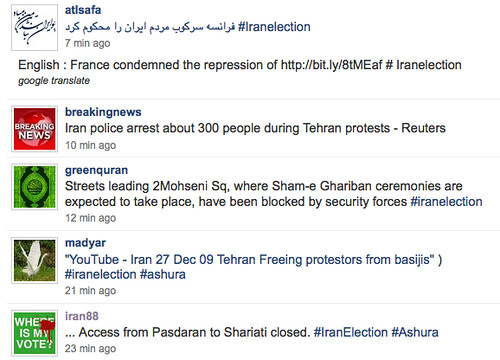

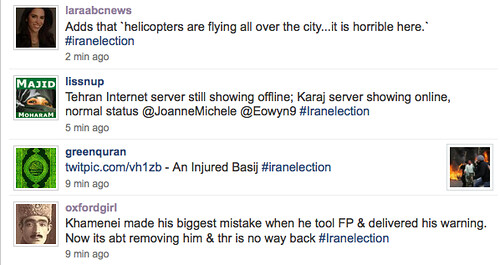

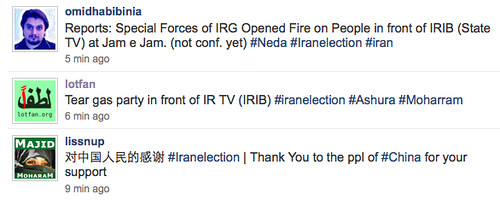



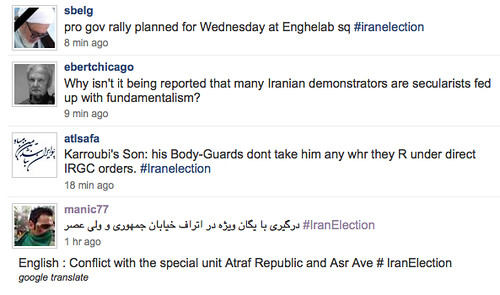



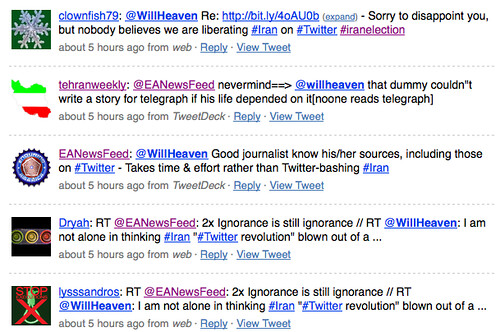





Leave a Reply